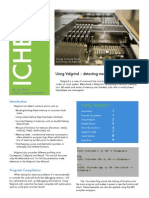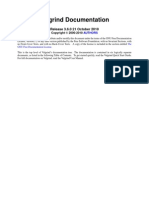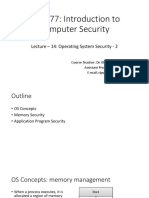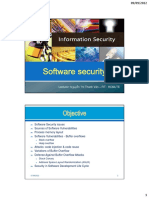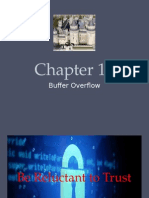0% found this document useful (0 votes)
6 views22 pagesModule 4 Memory Issues in Linux Application
Module 4 discusses memory management in Linux applications, highlighting its importance for performance, stability, and security. It identifies common memory issues such as segmentation faults, memory leaks, and buffer overflows, and recommends using memory-safe programming languages like Rust. The module also covers various debugging tools like Valgrind and sanitizers that help detect and resolve memory-related problems.
Uploaded by
09941677846Copyright
© © All Rights Reserved
We take content rights seriously. If you suspect this is your content, claim it here.
Available Formats
Download as PDF, TXT or read online on Scribd
0% found this document useful (0 votes)
6 views22 pagesModule 4 Memory Issues in Linux Application
Module 4 discusses memory management in Linux applications, highlighting its importance for performance, stability, and security. It identifies common memory issues such as segmentation faults, memory leaks, and buffer overflows, and recommends using memory-safe programming languages like Rust. The module also covers various debugging tools like Valgrind and sanitizers that help detect and resolve memory-related problems.
Uploaded by
09941677846Copyright
© © All Rights Reserved
We take content rights seriously. If you suspect this is your content, claim it here.
Available Formats
Download as PDF, TXT or read online on Scribd
/ 22
